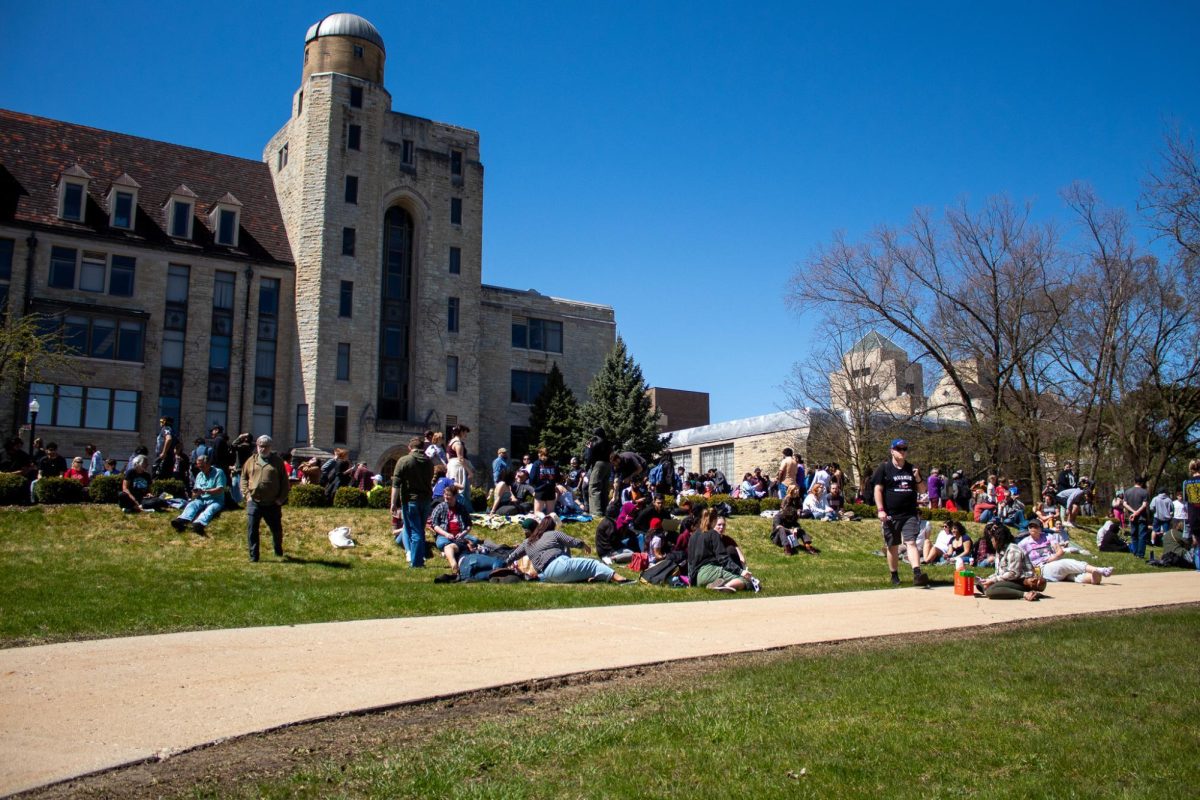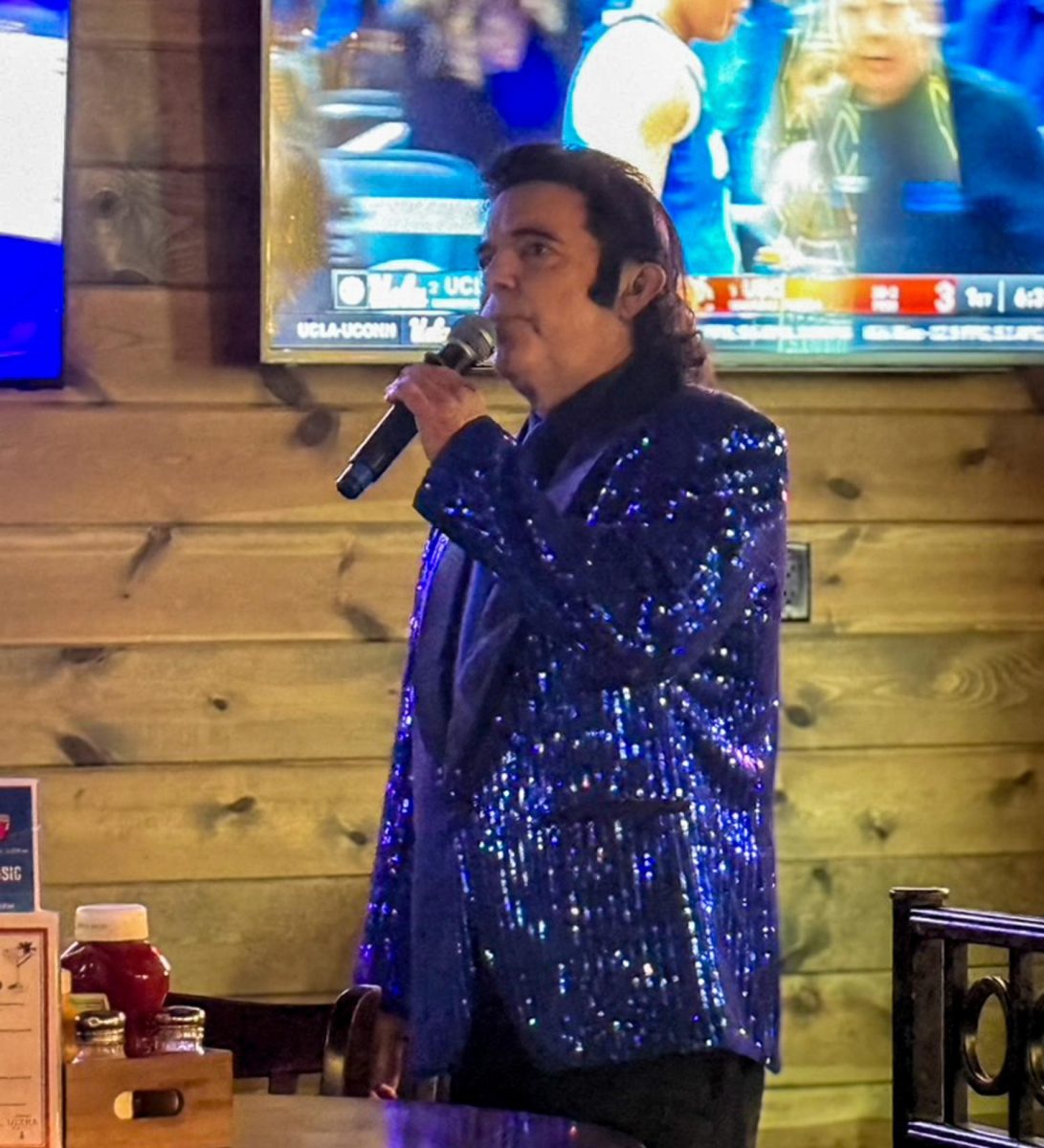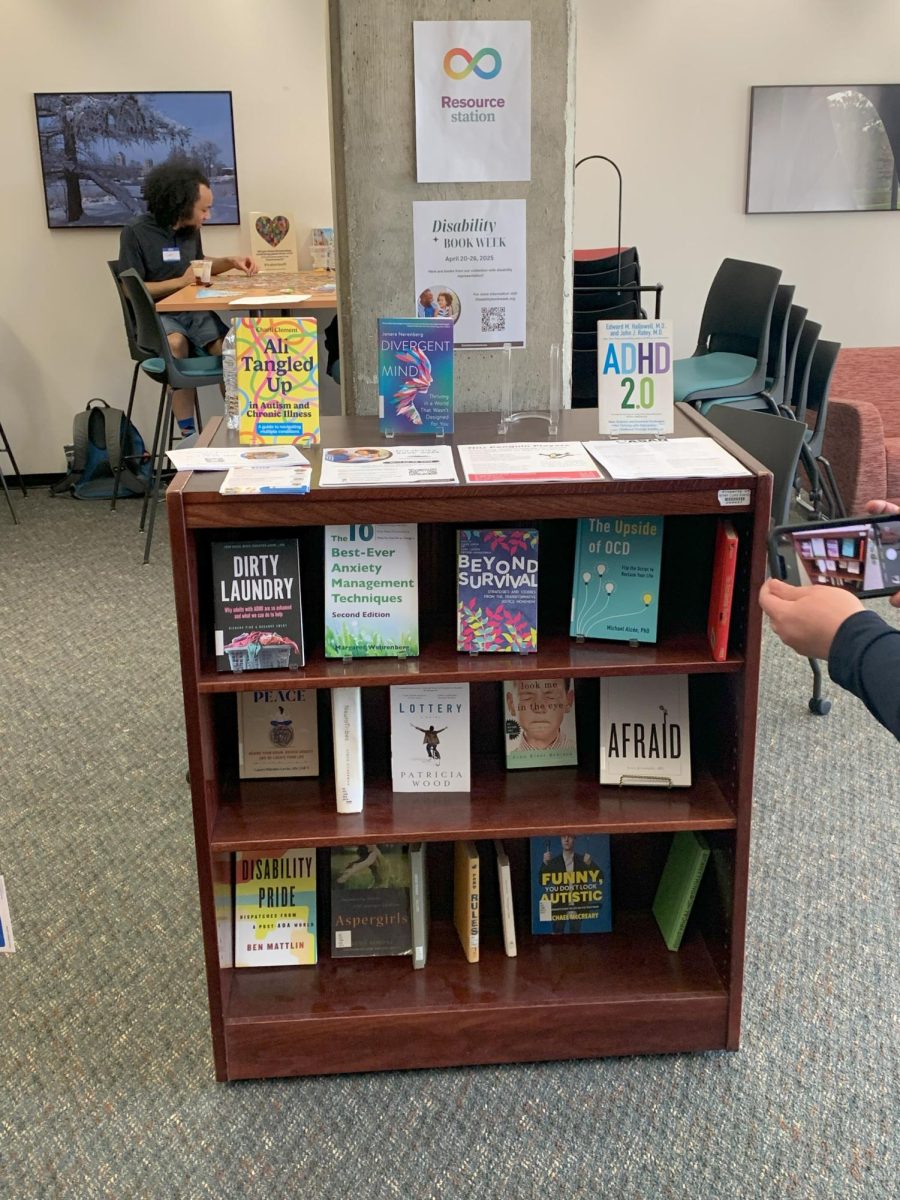A regular day of classes and rare, sunny DeKalb weather was quickly overshadowed by the ever-so-slight decline of daylight, sudden chilly air, and noisy chatter of voices ringing from Davis Hall.
The NIU community was invited by the NIU Physics Department for an evening of mini-games, eclipse trivia and front-row seats to the near-total lunar eclipse from 12:30 p.m. to 3:30 p.m. April 8.
The NIU Physics Department set up several activities at the Davis Hall Fountains for visitors to enjoy.
Among the activities was a large Connect 4 set, DIY glasses visitors could use to view the solar eclipse, cornhole on the grass behind the fountains and stations where visitors who didn’t have safety glasses could see a simulation of an eclipse.
Some visitors also brought their own means of entertainment while waiting for the big moment of truth, such as passing a few footballs back and forth or reading a novel on the grass.
Jeremy Benson, lab manager for the NIU Physics Department and announcer of the event, was pleased to see members of the NIU community and improve upon the previous solar eclipse event in 2017.
“I am very pleased with how many people we did have, especially once I saw the weather was getting much nicer,” Benson said.
Over 100 people attended the event, so many that the safety glasses provided by the Physics Department quickly ran out.
Visitors were encouraged to create their own eclipse glasses from a gathering of supplies or share their glasses with another visitor who may want to look at such a spectacle.
“I went from being worried about ‘what am I going to do if the weather is bad’ to ‘what am I going to do if the weather is so good I have a thousand people here.’ It’s a good problem to have,” Benson said.
For visitors not interested in taking the safety glasses home, the Physics Department had several recycling bins around the fountains where attendees could drop them off.
These glasses will be delivered to children in Latin America who will experience a similar eclipse in August, according to Benson.
As time wore on and the light slowly dimmed with each passing second, more and more heads turned upward to get a better look.
Some students even sat on the second floor of Lowden Hall to get a better look at the eclipse and festivities.
The area around the fountain became dim and chilly surprisingly quickly.
Once the eclipse began to pass, the warmth of the sun once again shone on the Davis Hall Fountains, and many visitors moved on to the rest of their activities for the day.
Benson felt the community deserved a bigger and better eclipse viewing event compared to the one in 2017.
“I guess the main inspiration was just that this great thing was going to happen. People were going to want to watch it, and I felt like I had an obligation to put something together,” Benson said.














